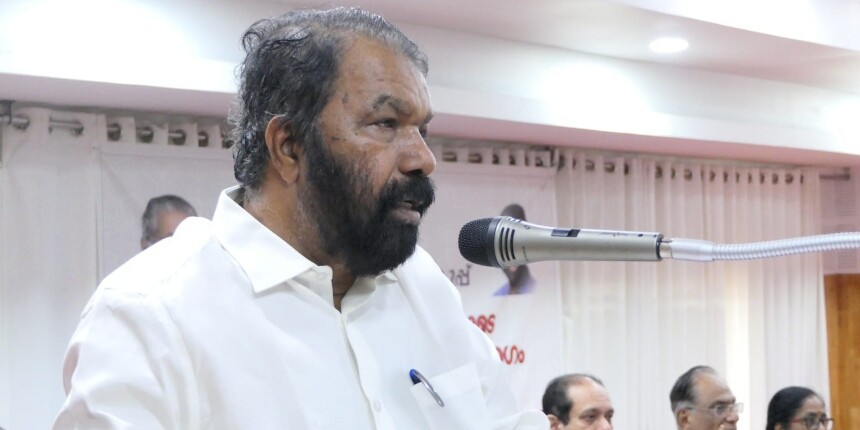Kerala SSLC exams need minimum pass marks: Education minister V Sivankutty
Atul Krishna | June 19, 2024 | 01:09 PM IST | 3 mins read
Lack of minimum pass marks in SSLC Kerala is putting students at a disadvantage in national entrance tests, said minister Sivankutty.

NEW DELHI: Kerala general education minister V Sivankutty, answering a question in the legislative assembly on Wednesday, said that a joint decision should be taken by the assembly to introduce minimum pass marks for each subject in the Class 10 Secondary School Leaving Certificate (Kerala SSLC) exams.
Education minister V Sivankutty said that currently students only need five or 10 marks to pass a subject in the Kerala SSLC exams due to a lack of minimum marks requirement in the written exams and the continuous and comprehensive evaluation (CCE) system which allows teachers to provide 10 or 20 marks to students as part of the internal evaluation.
“The issue is that in SSLC exams, there are two types of exams: a 90 minute exam with 100 marks and a 150 minute exam with 50 marks. Out of the 100 marks, 20 marks can be given by the teacher on the basis of CCE. There is no particular criteria for these 20 marks and any teacher can give these 20 marks and out of the remaining 80 marks, a student only needs 10 marks to pass. In a 50 marks exam, 10 marks can be given by the teacher, the students only need 5 marks to pass. The assembly has to take a joint decision to employ a minimum pass mark for each subject in the written exam,” the minister said, addressing the assembly.
Kerala: RTE Act and detention policy
Sivankutty further said that Kerala has continued with the no-detention policy, by which students cannot be detained for failing a class till Class 9, even though the centre has amended the Right to Education (RTE) Act in 2019 to allow states to go back on this policy.
The minister implied that this no-detention policy combined with students not requiring minimum subject marks in the Kerala SSLC exam will put students competing in the national entrance exams for central university admission at a disadvantage.
Although the government is continuing with the “student-friendly” decision of retaining a no-detention policy, the minister said that changes are required in the evaluation of SSLC exams. Sivankutty also said that governments have so far been reluctant to employ a “subject minimum” in fear of backlash from the public. The Kerala SSLC result 2024 was declared on May 8 and 4.25 lakh students out of the 4.27 lakh who appeared had passed.
CUET exam, central universities
“There are tens of entrance examinations for admission to various central universities. To ensure that our students are performing well in these exams, there should be a subject minimum. Exams are held after a lot of logistical difficulties, and when the results come, 99% students have passed. No government will put a stop to this. If the results drop by 10% then the media will write it off as the government’s failure. I urge the opposition to support us in bringing this change,” said Sivankutty.
The Common University Entrance Test (CUET UG) was introduced partly in response to the alleged marks inflation by school boards. The CUET is now the only route of admission to undergraduate programmes in most central universities. CUET UG 2024 was held in May and the CUET result is expected at the end of this month.
The Kerala education minister also said that new textbooks for higher secondary students will be framed as per the National Curriculum Framework (NCF) by 2026.
Follow us for the latest education news on colleges and universities, admission, courses, exams, research, education policies, study abroad and more..
To get in touch, write to us at news@careers360.com.